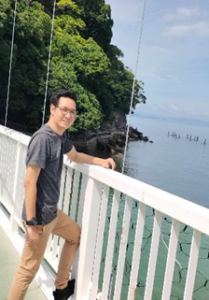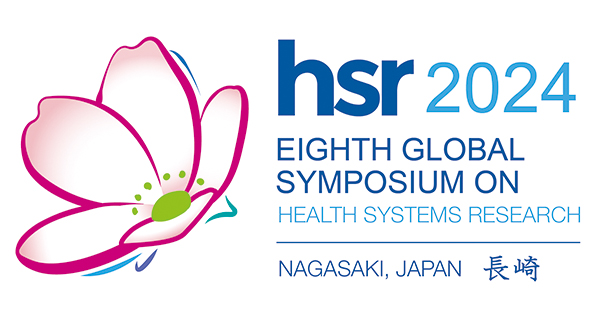Masters Programme, Department of Global Health
International Health Development course (MPH)
COURSE OVERVIEW
Duration
- Two years (enrolled in October)
Academic degree conferred
- Master of Public Health (MPH)
Locations
- Lectures are held at the School of Tropical Medicine and Global Health, Nagasaki University.
- Short-term Field Trip is held during the first year in Japan.
- Long-term Practicum during the second year, which is a combination of internship at a project or organization outside Japan and master research project, is compulsory for all MPH studnets.
Completion requirements
- 27 credits from compulsory modules
- 3 or more credits from elective modules
- Completion of Short-term Field Trip
- Completion of Long-term Practicum
- Successful completion of a master’s dissertation (thesis)
CURRICULUM
Modules related to International Community Health
- Designed to acquire knowledge for understanding of global health issues from a community health perspective.
- Reproductive Health and Gender I
- Child Health
- Community Health
- Reproductive Health and Gender II
- Public Health Nutrition
- Health Humanitarian Assistance
- Implementation Science
Modules related to Social and Behavioral Science
- Designed to provide students with a social point of view on health issues.
- Health Promotion I
- Medical Anthropology I
- Quantitative Social Research
- Qualitative Research Methods
- Health Promotion II
- Medical Anthropology II
- Demography
- Mixed Methods for Health Research and Evaluation
Modules related to Health Policies and Management
- Designed to acquire knowledge for offering solutions to various global health issues.
- Health Economics I and II
- Health System and Policy I and II
- Project and Programme Management I and II
- Development Assistance
- Health Finance
- Global Health Governance
- Social Entrepreneurship
Short-term Field Trip (1st year)
- The short-term field training trip is held in Japan in the first year.
- Students visit a designated site where there are various health issues and are to interview and communicate with people in the local government and non-governmental sectors including affected citizens.
- Students are expected to learn how multiple sectors interact with each other, how those interactions affect people’s health, and what kind of interventions are required to solve or mitigate health problems.
- For futher details, please refer to the dedicated webpage of Short-term Field Trip.
Long-term Practicum (2nd year)
- This eight-month Long-term Practicum during the second year is the most important part of MPH course.
- Students are required to apply to an internship at a project or organization outside Japan in order to experience practices of global health-related works and conduct a master research project.
- A facility for internship is chosen and decided under discussion with supervisors.
- Examples of project or organization for internship
- Projects run by JICA
- Various international NGOs
- Overseas research stations of Nagasaki University
- For further details, please refer to the dedicated webpage of Long-term Practicum.
Examples of previous students’ research projects
By graduates of 2022
The list of other dissertation (thesis) titles
FEES
| Application fee | 30,000 JPY |
|---|---|
| Admission fee | 282,000 JPY |
| Annual tuition fee | 535,800 JPY |
- Annual tuition fee is to be paid at every half a year with 267,900 JPY.
APPLICATION
Application requirements
- Bachelor’s degree from a recognized education institution (university, nursing school, etc.)
- Certificate of exam result of either of the following English exams taken on or after 1st January of two years before admission year
- IELTS Academic Module
- TOEIC Listening & Reading Test
- TOEFL
- TOEFL iBT
- Duolingo English Test
- *Applicants from English speaking countries or who completed a bachelor or master’s degree in English can be exempted from English exam
Please refer to the Application Guide for more detailes.
NOTICE: Those who do not satisfy the above requirements may still apply by undergoing Entrance Requirements Screening written on the Application Guide. Please carefully read the Application Guide and inquire to TMGH about your eligibility by the inquiry deadline written on the document (late November by ordinary).
Application periods
| Eligibility | Application | Entrance exam | Enrollment | |
|---|---|---|---|---|
| Japan-based applicants |
|
Early January to mid January † |
Mid February † | October 1 |
| International applicants |
|
Late March to mid April † |
Early May † | October 1 |
† Please refer to the Application Guide about the precise application periods and entrance exam dates of the forthcoming application deadlines
How to apply
Please carefully read the Application Guide and complete the required application forms.
MESSAGES FROM GRADUATES
Other messages from MPH graduates (MPH)

 TMGH is dedicated to improving global health via innovative research, education, and collaboration. With a faculty of renowned professionals and state-of-the-art facilities, TMGH provides a supportive academic development and innovation atmosphere.
TMGH is dedicated to improving global health via innovative research, education, and collaboration. With a faculty of renowned professionals and state-of-the-art facilities, TMGH provides a supportive academic development and innovation atmosphere.